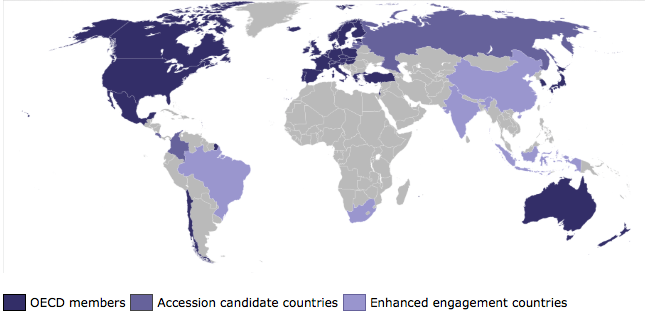Asset protection
He who trims himself to suit everyone will soon whittle himself away. – Raymond Hull
The Fed is stuck in between a hard place and a grenade, given this option, they will choose the hard place as unless you are looking for a one-way to ticket to nowhere you won’t choose the grenade. The Fed has nowhere to go; there is only one option available inflate the money supply or die trying to.
Central bankers worldwide have already started to work on the next level of QE. It’s called negative interest rates, and it’s just a matter of time before it comes to the U.S. The U.S will hold out for a bit longer as they want to maintain the illusion of a somewhat stronger currency. Remember this is a race to the bottom, and so the idea is to finish last instead of first. The Fed is already stalling; this is clear signal as any that they are already planning the next line of attack. And please do not fall for that mumbo jumbo that the Fed is panicking; having no choice and panicking is not the same thing. The Fed and its friends always win. Those that fight the Fed have a short life span. They have had decades to fine tune this nefarious art of fleecing the masses, and they are experts at it now. Those at the top have already used a vast portion of their paper wealth to secure valuable hard assets, so if the entire market were to collapse tomorrow, they would not lose anything. In fact, they will stand to make even more as they will come in and purchase everything in sight, for pennies on the dollar. However, the markets are not going to collapse tomorrow, one day in the future they might, but that day is not tomorrow.
The war on Interest rates is on, and you cannot fight a trend in motion, so the U.S will have no option but to join the battle. The chart below clearly illustrates how the world has embraced the concept of negative rates:
Source: http://www.telegraph.co.uk/
We have provided many factors over the past few months indicating that this recovery is a hoax, but instead of fighting the trend, we have taken the unconventional view, that despite the economic recovery being a hoax, the markets are destined to trend higher. The weapon of choice now is to throw increasingly large sums of money at the problem, and this works because the masses are not ready to fight. The can will be kicked down the road until the road ends or the can becomes so heavy that it’s impossible to kick it any further. We are still a long way from that point. The debt is going to increase to a level that will one day be labelled “as insanely unimaginable”. Sounds crazy; well then tell us what you make of the fact that it took over 100 years to get to $1 trillion, and now it surges by that amount every year.
Conclusion
The war on interest rates means that deflation will be here for longer than most expect, so it will be interesting to see how commodities in general, especially the precious metal’s sector hold up. Gold is off to a pretty good start, but it remains to be seen if a breakout past the strong zone of resistance at $1350. It needs to put in a pattern of higher lows which it has not managed to do since 2012. The next pullback will be interesting, for it leads to a higher low, and then this recent breakout might have some muscle behind it.
Low rates are positive for stocks, and since we are in the midst of a negative rate battle, the odds are in favour of this market trending higher.
Do not trust to the cheering, for those persons would shout as much if you and I were going to be hanged. – Oliver Cromwell
A quote from Mark’s daily VR Platinum Newsletter:
Gold closed up 7.80 at 1240.50. The recent peak of 1263.10 was posted on February 11. Gold traded at 1047.70, a new low on December 2. The gold market was being driven lower in the time-tested manipulation strategy of pushing prices lower to attract selling and enable accumulation. It still appears the U.S. Dollar Index has topped out for the near-term which helped gold. Either way, gold can rally in my opinion. Yes, the COMEX is a fraud. Others concur. Delivery of large quantities is nearly impossible as the COMEX offers cash settlements. That tells you physical supplies are limited if non-existent. Resistance is now 1306 and 1425. Support is 1030-1040 and then 980. My ongoing concern is central bank collusion to keep the price of gold down, growing pressure to control the flow of cash and the spying on bank customers who wish to withdraw cash. What we need to do to throw the bums out that are suppressing prices – rigging! When the financial system crashes either by its own weight or perhaps by actions of Russia, China or Islamic terrorism, think about what assets you want to own – a bank account? – a brokerage account? What if you are locked out? I’m holding my gold and adding all the way down. I would also suggest keeping a generous amount of cash, food, and firearms under the mattress as insurance. That is what the smartest people I know are doing.
via Mark Leibovit
 Bond Timers – #2 for the three-year period ending 12/31/14.
Bond Timers – #2 for the three-year period ending 12/31/14.
Bond Timers – #3 for the one-year period ending 12/31/15
Gold Timers – #2 for the ten-year period ending 12/31/14.
Stock Market Timers – #4 for the eight-year period and #3 for the ten-year period ending 12/31/14.
 Part of the collapse in confidence we are experiencing with government stems directly from the fact that politicians engage in far more criminal behavior than anyone in the corporate world. While bankers may manipulate markets to trade against clients, politicians just lie to keep their jobs. The fact that they are incapable of managing the country, no less the economy, is coming to a head. The pension crisis we face emerges from all the promises of socialism. The crisis sprung from the fact that they don’t fund much of their promises and just assume there are enough schmucks to tax.
Part of the collapse in confidence we are experiencing with government stems directly from the fact that politicians engage in far more criminal behavior than anyone in the corporate world. While bankers may manipulate markets to trade against clients, politicians just lie to keep their jobs. The fact that they are incapable of managing the country, no less the economy, is coming to a head. The pension crisis we face emerges from all the promises of socialism. The crisis sprung from the fact that they don’t fund much of their promises and just assume there are enough schmucks to tax.
You can’t advance to the end, but it is a powerful description of how the US Federal Government intends to steal retirement savings to fill its massive debt hole. Retirement savings is the only large amount of money left to steal, and it is an irresistable target for debt crazed politicians. Worth watching if you are a baby boomer who has money saved – Editor Moneytalks.net
In short, I believe we are about to witness the largest confiscation of private wealth in history … and the targets will be Social Security benefits, pensions, 401(k) assets, IRA accounts, and nearly every other retirement vehicle you may currently be counting on.
Sound hard to believe? Or a little too extreme?
Maybe it does.
But this is precisely where all of my research points.
It doesn’t matter if we’re talking about laws that have recently been passed …
New legislative initiatives that are currently being discussed on Capitol Hill …
Or, most disturbingly, some of the things our various Presidential candidates are actually saying out on the campaign trail!
The reality is that our country is so deeply in debt — and so many Baby Boomers are now reaching their golden years — that lawmakers will have NO CHOICE but seizing more money from anyone who has saved and invested privately … and I believe it’s all going to hit the fan the minute the November election is over.
So I’m not going to sit by and just watch millions of Americans lose everything they’ve worked so hard for.
Instead, I’m willing to risk a lot of ridicule and blowback to tell you the truth that nobody else will … and more importantly, to show you how to prepare yourself before it’s too late.
All the details are in this brand-new interview that I just finished.
Look, I know it might sound crazy to talk about Washington cutting Social Security benefits or forcing people to invest their retirements in more government debt.
But the reality is that both things are ALREADY happening to millions of Americans and it’s only just the beginning of what’s coming after the November election.
So just click HERE to watch my brand-new video now, while you still have the most time to prepare.
Best wishes,
Nilus Mattive
P.S. Very recently, people thought I was being a “fear monger” for saying lawmakers would take various Social Security filing strategies off the table. Then it happened — very unexpectedly and quickly — just a few months ago. And again, that’s just the start of a much bigger trend that you need to understand as soon as possible!

At one time, tax havens took great pride in calling themselves just that, since low-tax jurisdictions provide people with freedom from oppressive taxation.
But, in recent decades, the Organisation for Economic Cooperation and Development (OECD, based in France, but largely funded and controlled by the US) has been on a rampage to crush tax havens. The attacks have been regular and forceful and, although tax havens still exist around the world, every one of them has caved to a greater or lesser degree to ever more stringent OECD “international practices.” Presently, all tax havens live in fear of the OECD and its powerful enforcer, the US.
No measure has been more devastating to freedom from taxation than the US Foreign Account Tax Compliance Act (FATCA). The secret of its success is that the US fines banking institutions for not following the arbitrary FATCA guidelines. How can one country fine a bank in another country if that bank is following the laws of the country in which it’s located? Well, failure to pay the fine may result in the US cutting the bank out of international transfers in the SWIFT system, which would collapse the bank.
Essentially, this is a “shakedown” operation, purported to focus on tax evasion, but, in fact, focused primarily on demanding protection money from international banks. (More than eighty Swiss banks have been subject to roughly five billion dollars in penalties and fines imposed by the US.)
Not surprisingly, the OECD has spent decades castigating the very existence of tax havens, declaring them to exist solely for the purposes of money laundering, terrorism funding, tax evasion and even “international prostitution” (no kidding).
In spite of the OECD’s condemnation of tax havens, the US has, in recent years, created tax havens in several states, and is being dubbed “the new Switzerland.” Of particular interest here, is that the US itself has not signed on to the OECD’s “international standards.” The US is therefore imposing more stringent restrictions on others than it is willing to comply with itself. (Had Attila the Hun gotten into banking, this is the approach he might have used.)
Recently, the US has lifted the veil on their ambitions by announcing further, more dramatic inroads into becoming a tax haven. In September of 2015, Andrew Penney, a managing Director of Rothschild & Co. in San Francisco, announced that the world’s wealthy can avoid paying tax by moving their wealth to the US. As the US banks will not be subject to the draconian limitations that the US/OECD have forced on the world’s other tax havens, the US will (presumably) take over the tax haven business.
In one fell swoop, the sanctimonious position taken by the US, portraying tax avoidance as unpatriotic and even criminal, has been turned on its head.
Rothschild, a dominant banking name worldwide, since the eighteenth Century, has opened a company in Reno Nevada, just down the road from casinos such as Harrah’s and the Eldorado, placing their new tax haven where “high rollers” might be found. Mister Penney has described the US as “effectively, the biggest tax haven in the world,” although Rothschild & Co. have cautioned him not to publicise this view.
Now, it’s important in assessing this development not to point any undeserved criticism at the US. They should not be criticised because:
- They offer client privacy
- They offer freedom from US taxation for non-US citizens
- They offer a haven for those who are subjected to excessive taxation elsewhere
These are laudable practices. However, criticism may justifiably be made because the US has spent decades vilifying these very practices, as practiced by other tax havens. Further, the US has then done all it could to destroy those freedoms in the existing tax havens, even to the point of endangering the economies of those countries, then hypocritically offering the very same opportunities itself.
So…will the US be “the new Switzerland?” it’s claiming to be? I think not.
First, Americans cannot make use of the haven. That will mean that the US government will be providing tax advantages to non-US nationals that it does not provide to its own citizens. (The Isle of Jersey has a similar tax structure, which has allowed the OECD to come down heavily on them, crippling Jersey’s economy.)
In addition, this fact will not sit well with Americans, who will resent foreigners being more greatly advantaged in America than Americans themselves. The great majority of Americans have declared in polls that they already distrust their own politicians across the board. “Tax discrimination” will most certainly aggravate that existing resentment.
Second, the OECD have been fairly successful in their campaign to remove privacy from tax havens, through the characterisation of tax havens as centres for money laundering, terrorism-funding and tax evasion. For the US-led OECD to accept the US adopting the very same business practices that are the model for tax havens, the OECD loses its one effective weapon – the concept of tax avoidance as shameful.
More and more, the existing legitimate tax havens of the world have been bristling at the ever-increasing “international standards” demanded by the OECD. Many have outright refused to adopt standards that have not been adopted by OECD member-countries. With the Americans jumping into the tax haven pool at the deep end, the tax havens of the world are likely to refuse to honour existing agreements, let alone take on more stringent trumped-up standards.
Third, with the US going full-blown into the tax haven business, it can be expected that they’ll welcome clients from France, Germany, the UK, etc. – countries whose wealthier citizens are the primary clients of existing tax havens. In doing so, the US’s allies in the OECD will cry foul. It’s likely that they’d create their own tax havens in order to compete. This would mean that Germans would be making deposits in the US, whilst Americans would be making deposits in Germany. (The US would end up as the greater loser, and the once-allied countries would be like a group of cats fighting over the same bone.)
Finally, there’s the question as to whether those who possess wealth would be attracted to the US haven. To be sure, some would reason, “What could be safer? They’re the world’s most powerful country.” Others, though, would think it through more carefully. Already, many of them view the US as though it has a sign at its entry, reading:
DANGER! Depositing your wealth in a US financial institution will subject you to the whims of the US government, which has recently passed considerable legislation for capital controls and confiscation of bank deposits.
They regard the US as being deeply suspect, as the US has been the world’s foremost danger to the retention of wealth in recent years. To them, the deposit of any wealth in a US institution is paramount to placing their heads in the lion’s mouth.
The US has fined the banks in the world’s tax havens of billions of dollars under a bogus premise, thereby endangering depositors . Will those same depositors now trust the US to honour their deposits in the same way as the victim-banks did?
Historically, tax havens have been smaller countries, whose economies were based largely on the success of their tax haven services. This simple fact is critical to trust. It means that they would collapse if they failed to honour their commitment to depositors. Those who have held wealth for generations understand that larger countries cannot be trusted as holders of their wealth, as they can pull out the rug at any time.
As long as taxation exists, there will be tax havens. The wealth will flow to those that are most likely to honour their commitments over the long term.
Jeff Thomas is British and resides in the Caribbean. The son of an economist and historian, he learned early to be distrustful of governments as a general principle. Although he spent his career creating and developing businesses, for eight years, he penned a weekly newspaper column on the theme of limiting government. He began his study of economics around 1990, learning initially from Sir John Templeton, then Harry Schulz and Doug Casey and later others of an Austrian persuasion. He is now a regular feature writer for Casey Research’s International Man and Strategic Wealth Preservation in the Cayman Islands.















